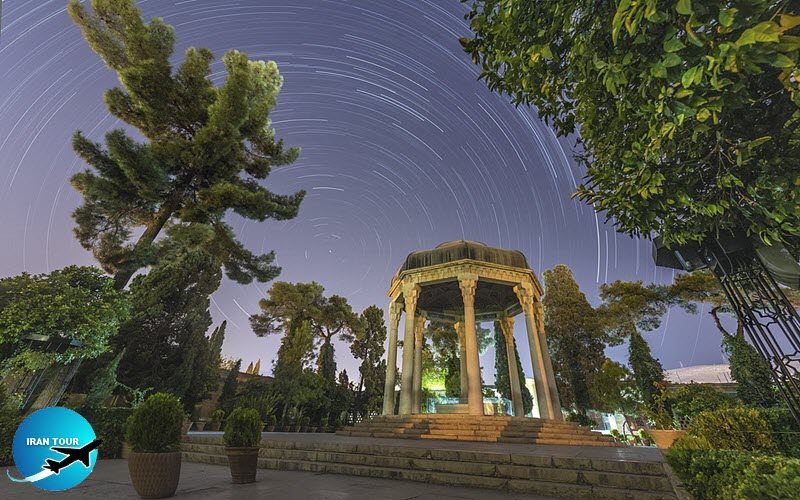Copyright 2020 - 2021 irantour.tours all right reserved
Designed by Behsazanhost
Hafez the great Iranian Poet
Hafez the great Iranian Poet
When we speak of 14thcentury Shiraz, or when the city is so much as is mentioned among educated Westerners, people immediately recall the name that has become the very symbol of the Persian lyric for both Eastern and Western readers - that of Mohammad Shams al-Din Hafez. But famous as this poet is in both East and West, and as much as his poetry has been interpreted and analyzed, our knowledge of Hafez's life remains sadly inadequate. Not even the exact date of Hafez's birth nor that of his death has yet been established, though most scholars seem to have accepted the dates of 1325 and 1389 respectively. Hafez's father, a merchant who had migrated from Esfahan to Shiraz, died early, leaving the family in straitened circumstances. Still, young Hafez apparently enjoyed a solid education in Persian literature, the sciences, and Arabic. He must have been very well versed in the Koranic sciences - hence his nom-de-plume Hafez (the title designating one who has learned the Koran by heart). Some sources speak of his poverty and say that he apprenticed himself to a baker to earn his living. It seems that he also worked as a copyist for quite some time, which means that even in his late twenties he still had to do some menial work. For a while, he enjoyed the patronage of several rulers of Shiraz as a court poet; until in about 1368, he fell out of favor at the court. He did not regain his position until 20 years later, just before his death. In his poetry, there are many echoes of historical events as well as biographical descriptions and details of life in Shiraz. Several invitations from rulers outside Fars show that his poetry attracted interest quite early in his life. However, unlike his globetrotter fellow poet Saadi, Hafez never left Shiraz, except for the two trips that he was forced to make. The first trip was when he was exiled from Shiraz because of mass opposition to his singular behavior; he stayed out of town until the situation cooled down. The other trip was to the port of Hormoz on the Persian Gulf, where he was to travel to India at the invitation of the Sultan of Bengal - a stormy sea, however, may have made him change his mind and led him to return to his native city.
 |
Very little is known about Hafez's personal life. He was almost certainly married, and one of his ghazals (a lyric poem of 6 to 15 couplets linked by a unity of subject and symbolism rather than by a logical sequence of ideas) is interpreted as an elegy for his son, who died, it is thought, in 1362. Hafez was undoubtedly an eminent Sufi, but he seems to rise above the narrow views of his coreligionists, and to look upon the world from a wider point of view. The poetry of Hafez is the embodiment of sensuality and free-thinking on the one hand, and of the highest mystical enthusiasm on the other. He is a master of rhetoric, and one of the great difficulties for his reader is to disentangle the complicated web of allusions and rhetorical figures that make up a line of Persian “true poetry".
Rumi states at the beginning of the Mathnavi that 'the secrets of the loved ones can better be expressed in the stories of others”, e.g., by veiling the truth under poetical symbols. It was this art that Hafez brought to perfection. In almost all of his verses, a constant oscillation between the worldly and the spiritual level can be discerned. That is why his poetry can be interpreted - and, what is more, enjoyed - on two, if not three levels (and there may be even more hidden meanings). His motto maybe this verse:
I declare it openly and am happy about my saying;
I am the slave of love, and free from both worlds.
- Details
- Category: Museums of Shiraz